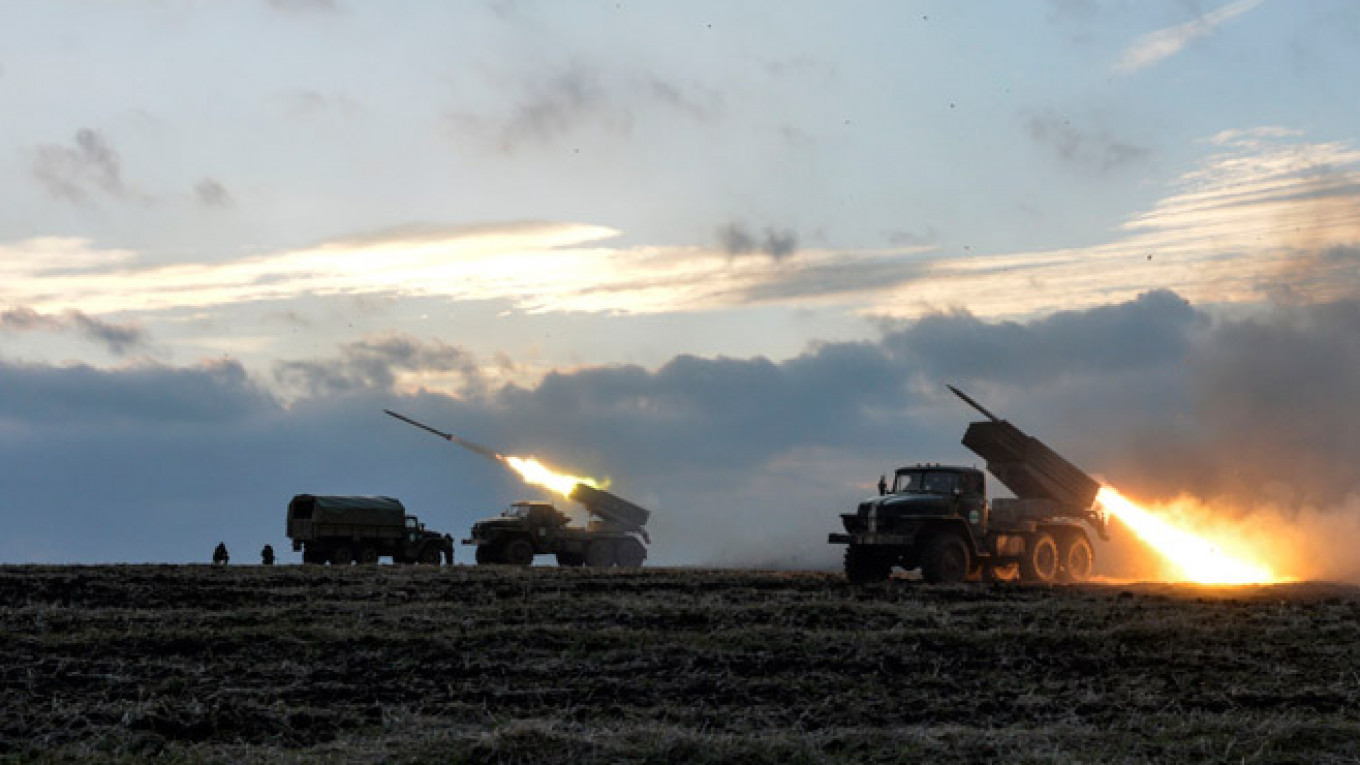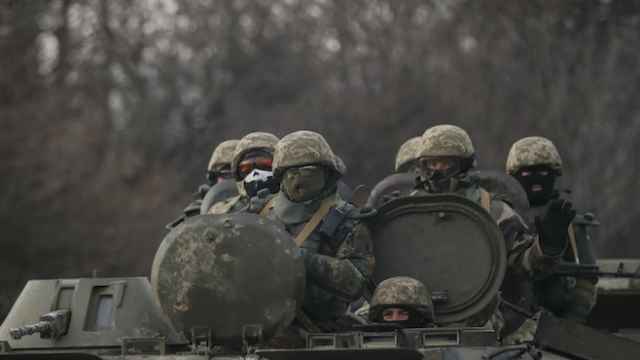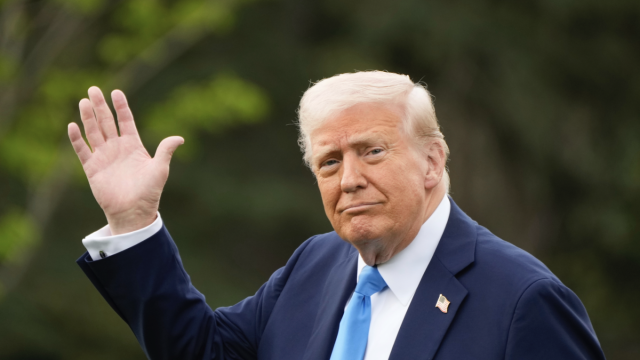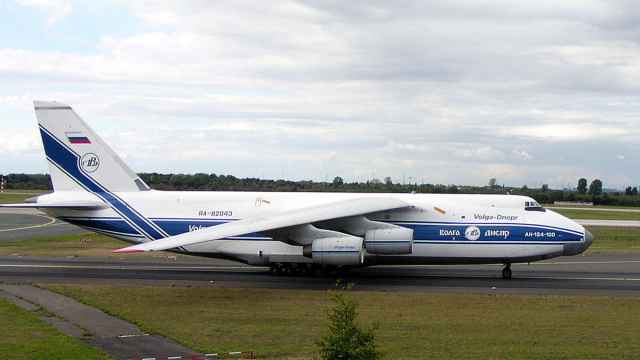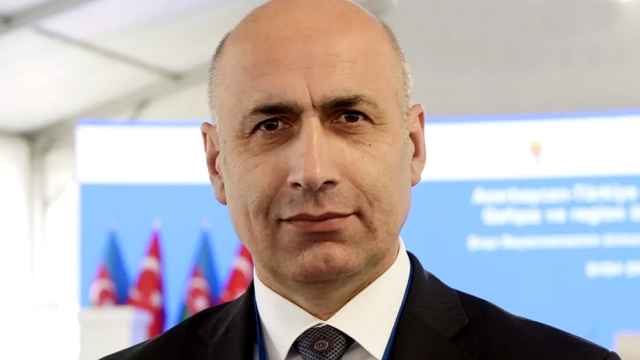The outcome of the Ukraine crisis talks in Minsk on Wednesday depends on whether the United States is prepared to exert enough influence on the divergent power elites in Kiev to accept the deal, analysts told The Moscow Times.
Whether Washington will opt to pressure the diverse political forces in Kiev to compromise, or will choose to send lethal weapons to Ukraine, thus raising the stakes even further, depends on the internal political situation in the U.S., which is already gearing up for the 2016 presidential election, they said.
As German Chancellor Angela Merkel and French President Francois Hollande scramble to broker a diplomatic solution to the conflict, the question is what arrangement would suit both Ukraine's President Petro Poroshenko and Russia's President Vladimir Putin, whose country is widely believed to be backing the separatists in eastern Ukraine.
Moreover, as the leaders of Russia, Ukraine, Germany and France prepare to engage in a decisive round of talks Wednesday, it is clear that while Putin controls the elites in Russia and enjoys widespread popular support, Poroshenko is further challenged by the divisions among the ruling parties in Kiev.
According to analysts interviewed by The Moscow Times, these rifts can only be overcome by the U.S. government, which is not party to Wednesday's negotiations.
What Does Putin Want?
While denying involvement in the conflict, Putin has repeatedly stated what outcome Russia would like to see emerge from the ongoing Ukraine crisis.
In an interview with the local Al-Ahram newspaper ahead of his visit to Egypt on Monday, Putin said that in order to end the crisis Ukraine will have to adopt a constitutional framework that will accommodate the country's diversity.
"They need to devise a constitutional state system that would ensure the safety and comfort of all citizens, with human rights fully observed," Putin told the newspaper, according to a transcript published on the Kremlin's website.
Both Putin and Foreign Minister Sergei Lavrov have previously said that Ukraine needs to become a federal state, in which each constituent region would have the right to influence key foreign policy decisions, including potential NATO membership.
Putin has also said that the Crimean Peninsula that was annexed from Ukraine by Russia last March must remain Russian territory, and that the government in Kiev that Moscow says came to power as the result of an unconstitutional coup must recognize the rebel formations in the Donetsk and Luhansk regions as equally legitimate and negotiate with their leaders.
In essence, Putin wants Ukraine to become a neutral buffer state that will not be part of the West's political, economic and cultural orbit. Any change of this status will necessarily involve a compromise with Russia, according to Putin's logic.
What Does Poroshenko Want?
In his inaugural speech as Ukraine's president last June, Poroshenko said that "Russia has occupied Crimea that was, is and will be Ukrainian."
"There can be no compromise on the questions of Crimea, the European choice and our state constitution," he said.
The Ukrainian government officially regards both the separation of Crimea and civil unrest in the country's east as purely a result of Russia's actions there. Therefore, what it wants is for things to return to the way they were.
At the same time, Poroshenko has been much less hawkish than many other officials in the Ukrainian government, including Prime Minister Arseniy Yatsenyuk and the Ukrainian parliament, which has officially declared that Russia is "undertaking state aggression against Ukraine."
Poroshenko has declared his support for decentralization of the country by giving more authority to regional administrations. He has also granted the rebel-held regions special legal status and said he is ready to declare them a free economic zone.
The real question is whether he can accept a compromise with Putin and still remain in power at home.
Unlike Putin, Poroshenko does not enjoy the support of a consolidated ruling elite in Kiev. According to Mikhail Pogrebinsky, head of the Center of Political and Conflict Studies think tank in Kiev, many top government officials would not accept any compromise with the Kremlin.
"The most active part of the so-called "war faction" that consists of the majority of Cabinet and parliament members would never agree and will resist a possible deal at all costs," Pogrebinsky said in a phone interview Monday.
"Only the U.S. government can influence these people," he said.
What Does the West Want?
While it is clear that the European countries are ready to accept a compromise in order to end the conflict, what the U.S. wants is less clear, Dmitry Trenin, director of the Carnegie Moscow Center think tank, told The Moscow Times.
"The question is whether Washington is ready to pressure the Kiev government at large into accepting that the rebel-held territories will become a frozen conflict zone, akin to the one in Transdnestr," he said.
Transdnestr is a breakaway state in the Republic of Moldova that hosts a Russian military base and is heavily dependent on Russian subsidies.
While Merkel and Hollande traveled to both Kiev and Moscow in order to broker a compromise last week, the U.S. ruling establishment has been pondering whether to send lethal weapons to Ukraine.
Merkel has been vocal in her opposition to arming the Ukrainian government, traveling to Washington on Monday to argue against the potential move before Wednesday's key talks in Minsk.
At the same time, whether weapons will be sent depends on how U.S. internal politics play out, according to Trenin.
"As a strategic player, the U.S. is really Russia's only opponent in the Ukraine crisis, so it has a much bigger influence on events than Europe," Trenin said.
"Ukraine as such is a marginal topic in U.S. internal politics, so sending arms there or pressuring its officials to accept a deal is more a question of the political fight ahead of the presidential election in 2016," he said.
Contact the author at i.nechepurenko@imedia.ru
A Message from The Moscow Times:
Dear readers,
We are facing unprecedented challenges. Russia's Prosecutor General's Office has designated The Moscow Times as an "undesirable" organization, criminalizing our work and putting our staff at risk of prosecution. This follows our earlier unjust labeling as a "foreign agent."
These actions are direct attempts to silence independent journalism in Russia. The authorities claim our work "discredits the decisions of the Russian leadership." We see things differently: we strive to provide accurate, unbiased reporting on Russia.
We, the journalists of The Moscow Times, refuse to be silenced. But to continue our work, we need your help.
Your support, no matter how small, makes a world of difference. If you can, please support us monthly starting from just $2. It's quick to set up, and every contribution makes a significant impact.
By supporting The Moscow Times, you're defending open, independent journalism in the face of repression. Thank you for standing with us.
Remind me later.


